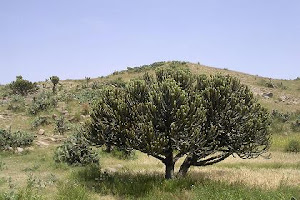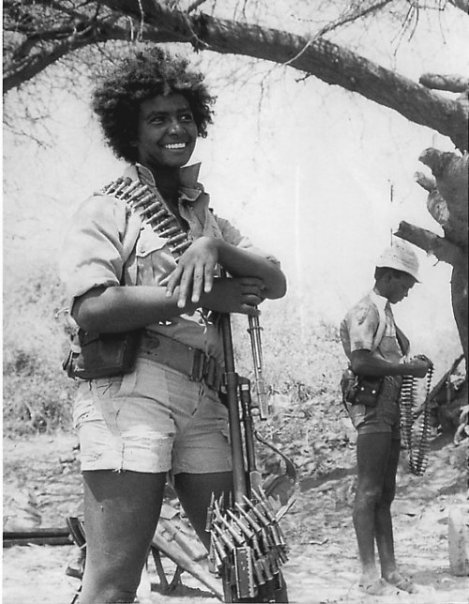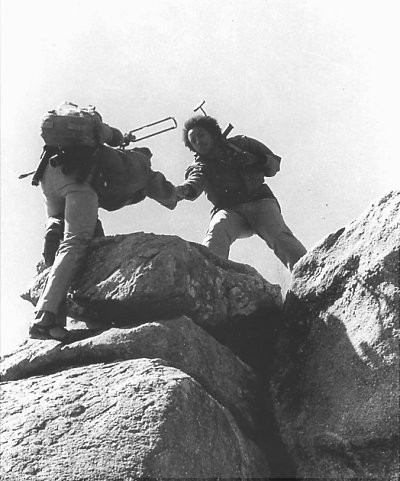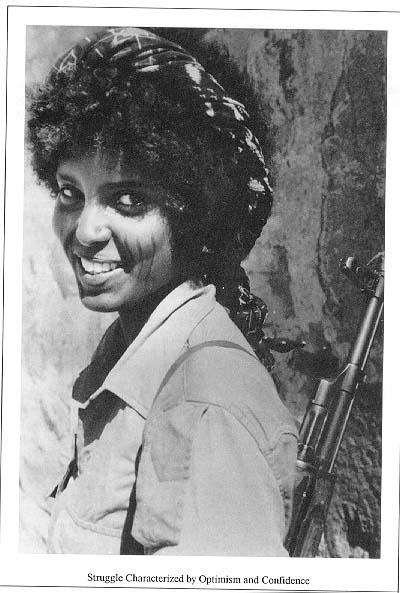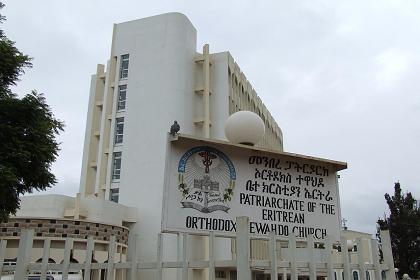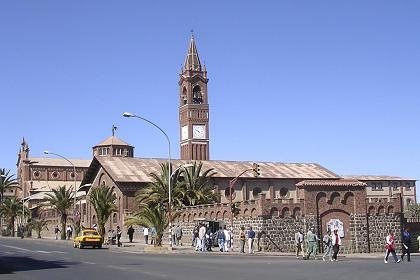Starting January 3, American’s will vote to select the candidates for the two parties and in late 2008 they will choose their president for the next four years. This is a wonderful system…a noble practice…if only the unfortunate majority of the rest of the people in this planet have similar opportunity. What a better chance would be than the power to change the state machine …? a machine that determine your future and your daily life. Needless to say, as I follow the process, I envy them for my people don’t have this power. But at the same time I felt this election is unfair,….perhaps injustice.
If election is the process by which people choose those who will control the power that determines their future, then almost all the people around the world, and certainly the people of Horn Africa, should vote in this election. The outcome of this election of will affect people all over the world. In fact one could argue that the outcome will affect relatively more to people in some parts of the world than will affect the average American. Americans have well built walls to protect themselves from the action of their government. A well developed institutions, a powerful senate and congress, an independent judicial system, a well distributed network of human right groups, a vigilant media systems….all protecting the individual American from the powerful Whitehouse machine. But what institutions does the rest of the world have to protect them selves from the “Washington machine”? Practically very little! So how would it be fair for the people who are probably to be less affected by its outcome only determine the fate of Washington?
Take for example the 2000 election. To an average American, whether the controversial election resulted in Mr. Bush or AlGore as president has little difference in their daily life. But to the Afgan, Iragis, or to the Somalis, perhaps the outcome would have been very different. The implications of this process where the less affected choose the leader for the rest of the world was clear in the 2004 election. Despite all what happened in the first term of Mr. Bushes’ presidency and to the surprise of the rest of the world, the 2004 election didn’t bring any change in Washington. If all the people affected by Washington had been given the chance to vote in the 2004 election, I bet the results would have been different.
And now, as we approach election dates, the people who will not vote are helplessly crossing their hands to see what their fate will look like. But their hope will not get due considerations in the decisions of the voters. As usual, 30% -40% of the eligible American voters will not even bother to show up in the election. And those who show up to vote will do so based on their own self interest.
Okey…may be I am exaggerating….….but I hope you have got my point…..the outcome of this election will affect the world equally as it does to an average American and thus are waiting to see who is the next president. If you want to know how this election will affect the rest of the world, let me strict my self to the part of the world that I know most….the unfortunate Horn of Africa. The Horn of Africa comprises Sudan, Eritrea, Djibouti, Ethiopia and Somalia.
Perhaps the most affected people are the Somalis. Last years the united States outsourced its war on terror to its ally in the region Ethiopia to oust the Islamist who came to power. The result was nightmare to the Somalis and a complete failure to USA. So far with in one year, over 1500 Somalis has died and over a million have displaced. The imported transitional government has proved to be a complete failure and the ousted Islamists are pretty much in good shape or perhaps more powerful. With this in the ground, it wouldn’t be hard to imagine what the Somalis are hoping out of this election.
Somaliland: the failure of the Transitional Federal government in Somalia and the rise of the Islamists have brought an unexpected miracle to Somaliland….. Somaliland has declared its independence after crisis in mainland Somalia. But no country has recognized their independence. But at the end of this year, with the failure of the TFG, there is a growing report that USA is planning to recognize the Somaliland and use it to protect and encircle the Islamists from South….what a wonderful opportunity for the Somaliland.….so Somaliland are looking the next US administration would stick to the plan, as the current administration may not finish the business before they leave office.
Djibouti…home for the US base in Africa, Djibouti has seen a rapid increase in military aid. Certainly, this is good for those in power….and want to keep it. But for those on the other side….u know what it means.
Eritrea: Certainly Eritreans couldn’t wait for the Bush administration and Janday Frazer to leave office…and will be looking for the next administration to push Ethiopia to respect the border ruling.
Ethiopia: well….Prime Meles has been the biggest beneficiary of the Bush administration in the region. Crafting him self as the best USA ally in the war on terror, he was able to silence USA in face of a fraud election, ignore an international border ruling with Eritrea, get a flow of millions of dollars in military aid to fight Islamists in Somalia. Certainly, it might be tempting for Meles now to change the USA constitution to give the Bush administration another term in power. But to those in Knjit, the umbrella of Ethiopian opposition who believe their victory in the 2005 election was cheated by Meles and the USA has cooperated by being silent, they couldn’t wait for Bush to go and a different people to come.Sudan: the fate of South Sudan and its hope to get their independence will not materialize with out a sympathetic President in Whitehouse…..and the Darfurian refugees would be looking for a president in Whitehouse who would keep his promise…not like Bush who would use their case in election terms only
Monday, December 24, 2007
Friday, December 21, 2007
Saturday, December 1, 2007
Michala Wrong on Bolton's Testimony

America's Latest African BlunderHow an about-face on a boundary issue could destabilize an entire region.
By Michela WrongPosted Thursday, Nov. 29, 2007, at 5:38 PM ET
John Bolton
Sometimes, authors of tell-all memoirs reveal even more than they realize. One such revelation comes on Page 347 of John Bolton's Surrender Is Not an Option, published earlier this month. I doubt most reviewers noticed the line as they leafed through the book in search of the former U.S. ambassador to the United Nations' famous putdowns. But for anyone who follows events in the Horn of Africa, it had all the impact of a small explosion.
Bolton, whose contempt for the United Nations is only matched by his exasperation with the State Department, recounts the position Assistant Secretary of State for African Affairs Jendayi Frazer adopted in 2006 toward the "final and binding" ruling an international commission had reached over the Eritrean-Ethiopian border, the cause of a war that claimed some 90,000 lives.
"For reasons I never understood," writes Bolton, "Frazer reversed course, and asked in early February to reopen the 2002 [Eritrea-Ethiopia Boundary Commission] decision, which she had concluded was wrong, and award a major piece of disputed territory to Ethiopia. I was at a loss how to explain that to the Security Council, so I didn't."
Why should this interest anyone outside the United Nations? Because, at a peculiarly sensitive moment in the Horn's history, Bolton's words confirm what those who follow U.S. policy in Africa sensed but could never prove: While presenting itself as a neutral player in a bitter contest between two African regimes, Washington has in fact played the old Cold War game, favoring realpolitik over international law—with disastrous results.
The decision Bolton cites was meant to settle where the fuzzy international frontier between Ethiopia and Eritrea really lay. While the Eritrea-Ethiopia Boundary Commission allotted many areas Eritrea claimed to Ethiopia, the village of Badme, a flashpoint of the 1998-2000 war, went to Eritrea. It was a decision Addis Ababa found impossible to swallow. As Bolton writes, "Ethiopia had agreed on a mechanism to resolve the border dispute in 2000 and was now welching on the deal."
What was at stake was never Badme village itself or its surrounding land. Nor, despite much trumpeting to that effect, was Ethiopia overly preoccupied by the fate of villagers whose settlements the EEBC line cut across. The standoff was all about wounded Ethiopian pride. Demarcation meant implicit recognition that the 1998-2000 war, which the Ethiopian army effectively won, was fought on a faulty premise. In Addis' eyes, it also meant accepting arrogant Eritrean President Isaias Afewerki's view of his tiny, strident nation as a significant regional player.
As a witness to the Algiers agreement that ended hostilities and established the EEBC, Washington has always publicly asserted its support for the commission's ruling. That finding was never Frazer's to challenge or change. No doubt her legal advisers warned her against the folly of trying to reopen a unanimous decision that took 13 months to reach, hence Washington's subsequent silence on the matter.
But Washington has, in every other respect, made its bias clear. Having decided Ethiopia was the region's linchpin state and a key ally in its campaign against Islamic extremism, it failed to pressure or punish Prime Minister Meles Zenawi when he defied international law. Ethiopia remains the biggest African recipient of U.S. aid—$500 million a year—and the strikes Washington launched at retreating Islamist fighters when Ethiopian forces overran Somalia last December illustrated the closeness of the two administrations' military cooperation.
Bolton's revelation could not come at a more sensitive time. The EEBC, which once planned to mark the line with cement pillars, says it considers its mission fulfilled at the end of this month. Exhausted by five years of Ethiopian foot-dragging, it intends to disband on Nov. 30, and the border will then be considered officially designated.
The fast-approaching deadline has both regimes in jittery mode. Eritrea accuses Addis of plotting to invade; Ethiopia denies this but has boosted military spending and warns that another war would be fought to the finish. Analysts say neither nation's forces are in a fit state to reopen hostilities, but a quarter of a million heavily armed troops stand mustered at the border. The International Crisis Group, which regards the possibility of a new war as "very real," has called for the United States to use its influence to rein in Addis and on the U.N. Security Council to reiterate its support for the EEBC ruling.
Washington, the only power that enjoys any effective leverage over Prime Minister Zenawi, appears to believe that in bolstering Ethiopia, it is backing a force for stability, a diplomatic approach that dates back to Emperor Haile Selassie's era. The opposite is probably true, because the unsettled border issue has acted as a festering sore, infecting the entire region.
Stalemated on the border issue, the two leaders have continued to wage a proxy war in alternative venues, each supporting rebel movements committed to their rival's downfall. Somalia has been the first major casualty of this cynical game: Eritrea's arming of the Islamic Courts Union was regarded as intolerable provocation by Addis, which sent its tanks rolling in.
Having boasted last December that it could pacify Somalia within two weeks, Ethiopia is now confronting the same hearts-and-minds problem as U.S. troops in Baghdad. The hundreds of thousands of Somali refugees streaming out of Mogadishu, like the villagers emerging from the Ogaden region with tales of Ethiopian rape and plunder, will provide future Islamist movements with easy recruits.
But the reverberations of the EEBC debacle spread much further. Why, in the future, should any well-connected African state ever agree to obey an international ruling that finds in favor of a smaller, weaker rival?
Washington appears to have learned nothing from the past, when the decision to embrace unsavory African strongmen purely on the basis of their anti-Communist credentials proved the most short-sighted of investments. Now, just as then, such supposed pragmatism is proving counterproductive, turning an already unstable region into a war-torn, refugee-plagued, famine-afflicted recruiting ground for extremism.
Subscribe to:
Comments (Atom)



















